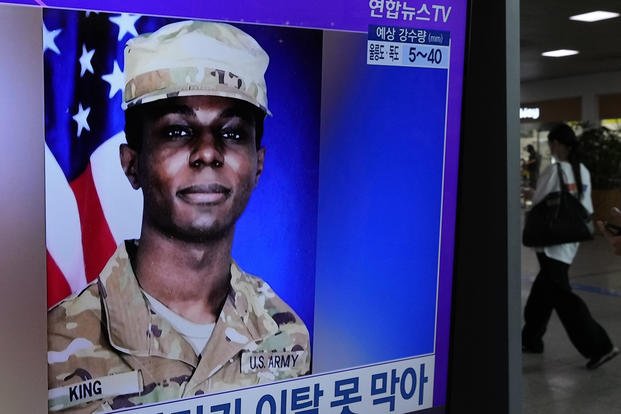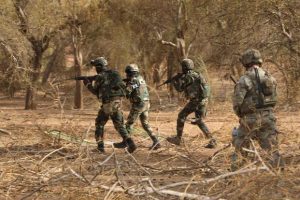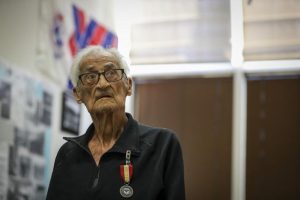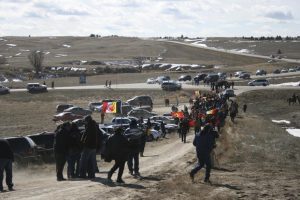Whether Pvt. Travis King will face Army punishment for fleeing into North Korea in July remains an open question days after he returned to U.S. soil on Sept. 28.
The Army said Tuesday that it still had not decided how to handle the case of the 23-year-old soldier as he continued the reintegration process at a Texas base. Service officials said it’s still too soon to decide whether he will be punished or charged for any crime under the Uniform Code of Military Justice.
However, legal experts say King is in a position to potentially face a wide range of charges, even desertion, despite the fact that the military never formally labeled him a deserter during his weeks of captivity by the secretive autocratic regime.
Read Next: After Missing Recruiting Goals, Army Announces New Occupational Specialty to Increase the Ranks
“They can go all the way from sending him to a court-martial with a very significant charge — a desertion charge — down to taking no action,” Eric Carpenter, a law professor at the Florida International University College of Law and a former Army judge advocate, told Military.com in a phone interview Tuesday.
Army Secretary Christine Wormuth told reporters at a press conference Tuesday that
“we will get to the point where the chain of command will decide what consequences he’ll be facing, but we’re not at that point right now.”
Wormuth said the Army is focused on King’s reintegration for now.
King was able to see his mom over the weekend and at some point he will face a debriefing where “people are going to want to talk to him and learn from what he saw,” she added.
One key detail will be King’s state of mind when he darted across the Demilitarized Zone — one of the most closely guarded areas in the world — into North Korean custody, according to Carpenter.
Defense Secretary Lloyd Austin said in July that King “willfully and without authorization” crossed the border. The soldier had been in some legal trouble in South Korea, where the U.S. has an Army presence, and was in the process of being flown back to Fort Bliss, Texas, when he fled, according to reporting at the time.
If, in his mind, he was “never coming back,” Carpenter explained, “that’s desertion” and a serious charge. However, absent that frame of mind, then King’s actions likely amount to a more basic absence without leave, or AWOL.
Pentagon spokeswoman Sabrina Singh told reporters Thursday that King’s motivations for crossing into North Korea were under investigation. The country made a surprise announcement last week that it was releasing King back into U.S. custody.
“That’s something that the Army is leading with [United Nations] Command,” a multinational military force that supports the security of South Korea, Singh added.
Perhaps the closest comparison to King’s case is that of former Army Staff Sgt. Bowe Bergdahl.
Bergdahl was a member of 1st Battalion, 501st Regiment, who in 2009 walked away from his post in Afghanistan and was captured by the Taliban, triggering a military search. He was held captive for five years before being released in a prisoner swap for five U.S. detainees.
Bergdahl was “locked up in a Taliban cage for five years and they still charged him” with desertion and misbehavior before the enemy, Carpenter said. The Bergdahl case was on a scale much larger than King’s, and it lasted for years, drawing debate and heated commentary from top U.S. officials.
Carpenter also pointed out that when Bergdahl was in the same reintegration phase that King now finds himself in, “he was super cooperative.”
“He gave over a ton of information and that was really mitigating and that was good evidence for the defense and the court-martial,” he said.
Ultimately, the choice to proceed with a court-martial and more serious charges could be a risky one for the Army since it will be forced to present all evidence in a military court of law, as opposed to a nonjudicial setting, and open up the option of appeals for King.
Again, Berghdal’s case is informative since, despite securing an initial conviction at court-martial, that conviction has since been overturned on appeal and the case drags on to this day.
Meanwhile, as the gears of military justice turn, Singh said that King “was in good spirits when he was getting on the flight to return home.”
King’s mother, in a statement released through a spokesman, said that she “will be forever grateful to the United States Army and all its interagency partners for a job well done.”
— Steve Beynon contributed to this report.
— Konstantin Toropin can be reached at konstantin.toropin@military.com. Follow him on X at @ktoropin.
Related: After North Korea Response, Expert Says Army Pvt. Travis King’s Future Is Likely Political Pawn
Story Continues
Please rate this CIBA article
Vote






